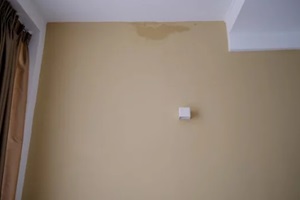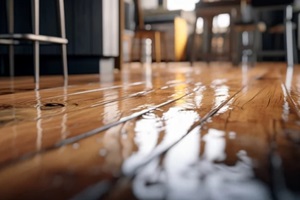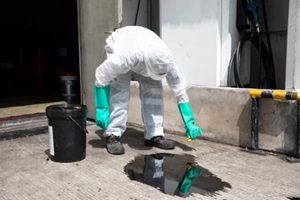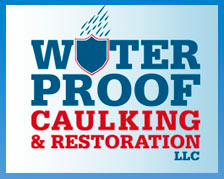 Water damage is an ever-present concern for New Jersey business owners. With the state’s exposure to heavy rains, flooding, and even hurricanes, leaks, and moisture seepage can quickly spiral into extensive repairs if left unchecked.
Water damage is an ever-present concern for New Jersey business owners. With the state’s exposure to heavy rains, flooding, and even hurricanes, leaks, and moisture seepage can quickly spiral into extensive repairs if left unchecked.
Assessing your property’s vulnerability is the first step in determining whether NJ commercial waterproofing is a prudent investment for protecting your assets and ensuring business continuity when bad weather hits.
Inspecting the Exterior
Start by thoroughly examining the exterior of your building, as the outer shell is your first line of defense against bulk water penetration. Check the foundation for any cracks or deterioration that could allow moisture intrusion.
Also, inspect the exterior walls and other surfaces for gaps, cracks, or areas worn thin by the elements. Make sure to pay close attention to the condition of your roof. Given its exposure to rain, snow, and other precipitation, roof leaks are a leading cause of water damage.
Check for warped, missing, or damaged shingles or sections with noticeable wear. Also, confirm that the slope and drainage are effective at shedding water away from the building.
Additionally, examine the status of the building’s gutters and downspouts. If clogged with debris or overflowing, they can funnel large volumes of water into the structure. Properly functioning gutters and downspouts redirect rainwater away from your property, protecting it from long-term damage.
Surveying the Interior
Next, move your inspection indoors. Scan walls, ceilings, and floors for stains, mold, or other indicators of moisture damage. This may indicate that water is infiltrating exterior walls or seeping in through the foundation. Also, identify the exact location of water penetration based on visible leaks.
Check for additional sources of potential water leakage, such as supply pipes, drains, or water-based appliances. Replacements may be in order if worn, corroded, or past their lifespan.
Pay particular attention to areas such as basements or crawlspaces for dampness, pooling, or seepage, which are clear signals that water is making its way inside.
Reviewing Past Records
Past water bills, service invoices, or records of damage claims can also give you insight into potential problems. Analyze bills for any spikes that can’t be accounted for by weather or reasonable changes in usage.
 New leaks may first become apparent as increased water expenditures. Additionally, review any recent plumbing repair invoices or claims for water damage, even minor ones.
New leaks may first become apparent as increased water expenditures. Additionally, review any recent plumbing repair invoices or claims for water damage, even minor ones.
These may stem from underlying deficiencies in waterproofing that will only worsen over time. Details around past damage can help you pinpoint specific problem areas to prioritize.
Determining the Need for Waterproofing
Once you’ve thoroughly assessed interior and exterior risk factors, you can determine whether commercial waterproofing is prudent.
Weighing the Risk Factors
Consider your property’s inherent risk factors, such as its flood zone location or history of heavy rains and extreme weather exposure. How prone is the immediate area to high precipitation and flash flooding? Properties built within the past few decades may benefit from more rigorous modern construction standards.
Also, take stock of your building’s overall age and condition. An older structure whose waterproofing elements have already deteriorated over decades may be much more vulnerable than a newer one built to strict codes.
Any early signs of water infiltration you detected during your inspection may be the first indications of what will evolve into a much larger problem without intervention.
Considering the Benefits
Commercial waterproofing provides substantial advantages that directly affect your bottom line. First and foremost, comprehensive waterproofing prevents extensive structural degradation that requires major restoration work or repairs down the line.
Stopping leaks and seepage at their source enhances longevity and avoids much more disruptive repairs later when the damage has compounded. Enhanced waterproofing adds value and marketability to your property while giving you invaluable peace of mind.
You gain the security of knowing your space will remain usable even during storms or high precipitation. By avoiding damage-related business interruptions, you also maintain productivity and continuity for your team.
Estimating Potential Costs
The upfront investment required for waterproofing pales compared to the financial toll of repairing or restoring extensive water damage. Research quotes from reputable NJ commercial waterproofing contractors to estimate your upfront costs.
 Then, weigh these against your risk factors for moisture issues, repair costs projected into the future, and the many benefits waterproofing delivers. Consider it an insurance policy against exponentially higher expenses later.
Then, weigh these against your risk factors for moisture issues, repair costs projected into the future, and the many benefits waterproofing delivers. Consider it an insurance policy against exponentially higher expenses later.
In most cases, that initial financial outlay is more than offset through damage prevention. And that translates directly to dollars through more seamless business operations, avoided interruption losses, and reduced repairs.
Protect Your New Jersey Commercial Property with Waterproof Caulking & Restoration
Waterproof Caulking & Restoration’s team of experts has helped business owners across New Jersey to objectively assess their waterproofing needs and determine prudent solutions to protect their investment.
Contact us today at 484.265.9646 or schedule a consultation online and let us help you protect your property, safeguard productivity, and give yourself enduring peace of mind with NJ commercial waterproofing tailored to your unique requirements.
